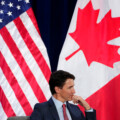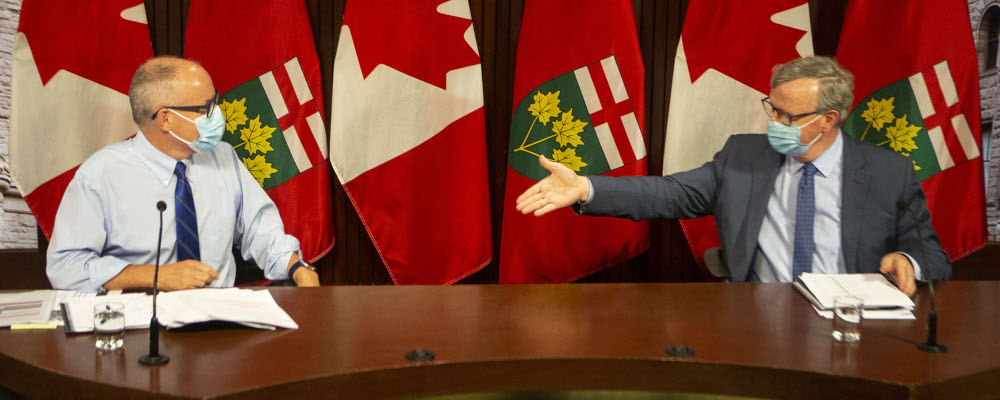The pandemic has seen a pitched battle between those who claim politicians are making decisions driven entirely by crass political considerations and others who fear our leaders are ceding too much control to unaccountable experts.
No matter where you sit on the debate, the question of who we want calling the shots is all-important in a liberal democracy.
It speaks to a fundamental tension between our society’s commitment to representativeness on one hand and the key role of evidence and expertise in collective decision-making on the other. Most would agree that both ingredients are crucial in policy and governance. But fewer might acknowledge the zero-sum dynamic between them. The pandemic has exposed this tension and renewed debates about how we ought to think about the balance between representative democracy and the place for expertise in our state apparatus.
A stark way to frame the question might be as follows: Are we comfortable with unelected and mostly unaccountable experts having the final say on decisions in a time of crisis based on their narrow expertise or should democratically elected officials cast the final vote based on various sources of information and after weighing a range of considerations?
How we ultimately answer this question will no doubt guide future pandemic planning and decision-making at the highest levels of government.
Canada’s COVID-19 Response
At the outset of the pandemic, governments around the world were caught off guard. Scattered reports and in some cases, deliberately misleading information coming out of China and the World Health Organization (WHO), underestimated the transmissibility and severity of COVID-19.
But one thing was certain, governments needed to respond quickly based on the best available evidence and information.
In Canada, science tables and advisory committees within government were struck to inform and guide policymaking. Political leaders and health officials started holding weekly, and in some cases even daily, press conferences. And the media circuit was flooded with COVID-19 case counts, deaths and ever-changing public health guidance and restrictions.
“Over the next little while, we will all have to make some very, very difficult decisions and you deserve the same information I have. You deserve to see the same data that I see when I’m making decisions,” Ontario Premier Doug Ford said at a press conference in April, 2020, underlining the uncertainty facing decision-makers.
In those early days, governments were racing to get ahead of the virus, and the public, for the most part, was supportive of their efforts to do so. Public health officials became household names, growing increasingly more powerful in their ability to influence government policy and direct pandemic response efforts.
In the name of public health, restrictions resulting in varying degrees of economic and social consequences were implemented across the country with limited opposition.
But by the end of 2020, many Canadians had grown weary after multiple lockdowns and dissenting voices grew louder. Strict public health restrictions had resulted in shuttered businesses and schools, high unemployment rates, and poor mental health. These auxiliary consequences may have ultimately been worth it to minimize infection rates and deaths but they themselves also carried significant costs.
It’s understandable therefore that people came to crave a return to “normal,” or at the very least a plan from their government to get there.
The Politics of Decision Making
Looking to Ontario as a bit of a case study, critics of the government response have often denounced Queen’s Park for placing an emphasis on public opinion and polling data instead of health expertise.
“We do not know if the decisions being made in cabinet are based on politics or science…” an internal critic of the government said in April of this year.
Yet aren’t politics, broadly defined, what we want our elected officials to be guided by? Isn’t politics how we account for the multiplicity of interests and perspectives that need to be factored into collective decision-making? Isn’t the whole purpose of government to have a legitimate mechanism to gather the best information available on any given issue and then weigh it according to a combination of normative and empirical considerations? What else besides politics would we use to make the most judicious decision on behalf of the population?
Representative democracy isn’t just a slogan about government by the people. It’s a mechanism to account for different interests and perspectives in a pluralistic society and render collective decisions without conflict or instability. An elected government is the people’s representatives precisely because we use politics to balance competing public preferences including — indeed even more so — in a crisis.
That is the difference between an unaccountable expert and an elected official. Elected officials are accountable to the public through local representation and in turn are supposed to act on our behalf and based on some conception of our best interests. As such, a politician’s basic job is to take the multitude of public opinion into account when weighing policy options.
What good are draconian measures if they are ignored by the people? Politicians, who have a strong vested interest in gauging the mood of the electorate, are better suited to know what people can take and what they can’t.
Experts have an important role when it comes to advising government, especially in times such as these where critical health decisions are being made and the most up-to-date medical knowledge is essential. But it is not their job to cast the final vote on a decision.
Because come election day, the only person we can hold accountable for those decisions is the name on the ballot.
Where do we go from here?
This pandemic has shown us the awesome power that our governing institutions yield at all three levels — federal, provincial, and municipal — when it comes to limiting our rights and freedoms in the name of public health.
As the pandemic continues to play out, and in future times of health crisis, we can expect these powers to remain in place. However, I caution the politicians and critics who call for decisions made under these powers to be free from so-called political influence or considerations.
Politics isn’t some grubby problem to solve for. It’s fundamental to the legitimacy of our system of democracy — and one can argue it’s fundamental to good and judicious collective decision-making.
The public remains weary, and strong vaccination rates show individuals are doing their part to keep the country on track to further remove COVID-19 restrictions. Those who are vaccinated will be far less willing to accept broad public health restrictions after previously being told vaccines were our way out, as Prime Minister Justin Trudeau did just last month.
So as we approach a potential fourth wave, and an upcoming election cycle, we can expect politicians across all parties to place a greater emphasis on public opinion when it comes to making decisions. And that is exactly how it should be.
Recommended for You
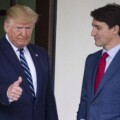
Michael Geist: Years of Liberal digital policy is dead. You can thank prorogation and Donald Trump for that

Wodek Szemberg: No protests, no marches, no riots—This time, Donald Trump enters office leading a country resigned to who he is
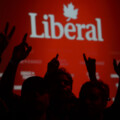
Eric Lombardi: It’s time to make the Liberal Party liberal again
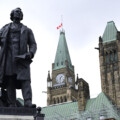
Need to Know: It’s time to turn Canadian identity up to 11
